Langham Monographs (21 vols.)
Digital Logos Edition
Overview
The Langham Monographs present works of evangelical scholars from the developing world. These comprehensive expositions tackle contemporary, regional issues, as well as theological and biblical topics.
Discover the impact violence, urban poverty, and culture have on the growing African church and how living out biblical and theological values can positively affect such struggling nations as Mozambique, Nigeria, and South Sudan. See what studying Scripture in its literary, cultural, and socio-political contexts can do to transform passages like Philippians 3:10–20, Psalm 145, and John 15:1–17. Examine the role the doctrine of the Holy Spirit plays in Reformed orthodoxy and Protestant systematic theology. See what present missiological approaches look like among varying religious groups. Explore the history of Christianity in Suriname and discover how economics and culture shape Christian leaders’ approaches to ministry in China and the North African Church.
This title is included in the following collections
You can save when you purchase this product as part of a collection.
Langham Global Library Collect...
$2,199.99$2,199.99Logos 9 Collector's Edition Le...
$11,399.99$11,399.99Logos 9 Ultimate Legacy Librar...
$24,999.99$24,999.99

- Analyzes contemporary moral and social issues facing the African Church
- Provides a fresh look at contemporary missiology and illustrates where Christians have fallen short
- Examines Scripture passages in different contexts
- Studies different theological topics including Holy Spirit and time
- Title: Langham Monographs
- Publisher: Langham
- Volumes: 21
- Pages: 6,964
- Resource Type: Monographs
- Topic: Holy Spirit; missiology; ethics; hermeneutics and interpretation
- The African Christian and Islam edited by John Azumah and Lamin Sanneh
- Christianity in Suriname: An Overview of Its History, Theologians and Sources by Franklin Steven Jabini
- Communal Holiness in the Gospel of John: The Vine Metaphor as a Test Case with Lessons from African Hospitality and Trinitarian Theology by Musa Victor Mdabuleni Kunene
- Concrete Time and Concrete Eternity: Karl Barth’s Doctrine of Time and Eternity and Its Trinitarian Background by Li Qu
- Development of Chinese Church Leaders: A Study of Relational Leadership in Contemporary Chinese Churches by Otto Lui
- The Doctrine of the Holy Spirit in the Major Reformed Confessions and Catechisms of the Sixteenth and Seventeenth Centuries by Yuzo Adhinarta
- Foundations for African Theological Ethics by James Nkansah-Obrempong
- The Impact of Ethnic, Political, and Religious Violence on Northern Nigeria, and a Theological Reflection on Its Healing by Sunday Bobai Agang
- Missionary of Reconciliation: The Role of the Doctrine of Reconciliation in the Preaching of Bishop Festo Kivengere of Uganda between 1971–1988 by Alfred Olwa
- Mission Between the Times by C. René Padilla
- Missions amidst Pagodas: Contextual Communication of the Gospel in the Burmese Buddhist Context by Peter Thein Nyunt
- “Our Politeuma Is in Heaven!”: Paul’s Polemical Engagement with the “Enemies of the Cross of Christ” in Philippians 3:18–20 by Gennadi Andreyevich Sergienko
- Reading Psalm 145 with the Sages: A Compositional Analysis by A.K. Lama
- Reconciliation and Peace in South Sudan: A Christian Perspective by Levi Lukadi Noah
- Role of the Holy Spirit in Protestant Systematic Theology: A Comparative Study of Karl Barth, Jürgen Moltmann, and Wolfhart Pannenberg by Wilson Varkey
- Russian Baptists and Orthodoxy, 1960–1990: A Comparative Study of Theology, Liturgy, and Traditions by Constantine Prokhorov
- A Study of Current Leadership Styles in the North African Church by Farida Saïdi
- The Transformation of African Christianity: Development and Change in the Nigerian Church by Sunday Jide Komolafe
- A Theological Examination of Symbolism in Ezekiel with Emphasis on the Shepherd Metaphor by Joel K.T. Biwul
- Theology of Work and Poverty Alleviation in Mozambique by Xavier Massingue
- Yahweh’s Elegant Speeches of Abrahamic Narratives: A Study of the Stylistics, Characterizations, and Functions of the Divine Speeches in Abrahamic Narratives by Matthew Michael
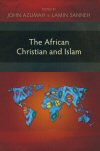
During the summer of 2010 Ghana played host to the first ever conference held within Africa to focus solely on the relationship of the African Christian and Islam. The event was led by John Azumah in partnership with the Center for Early African Christianity. The conference, chaired by Archbishop John Olorunfemi Onaiyekan of Abuja welcomed over 50 participants from across 27 African countries and several denominations. This book is a collection of the papers presented by 22 of the delegates forming a historical survey and thematic assessment of the African Christian and Islam. In addition, key information on the introduction, spread, and engagement of Islam and Christianity within nine African countries is presented. The book closes with biblical reflections that opened each day of the conference, providing useful examples of Christians reading the Bible in relation to Islam.
The African Christian and Islam demystifies the mutual ignorance that is often common amongst African Christians and Muslims, thus building a vital bridge towards interreligious epistemology. The edited book provides a complex historiography of Africa’s religious tapestry, underscoring its robustness, spiritual and confessional variegatedness and unity, but also mutual dependence in growth, development and impact. . . . The urgency of such a book cannot be overstated at an increasingly insecure time in which the global arena is awash with incessant interreligious tensions, conflicts and violence. The book is a must-read for scholars, students and religious and political entrepreneurs who are genuinely committed to interreligious understanding and coexistence in Africa and globally.
—Afe Adogame, senior lecturer, World Christianity and Religious Studies, University of Edinburgh
The stimulating papers from the conference contained in this volume have laid the foundation for African Christians to consider their relation to Muslims and Islam in the African context. They offer a basis for the development of critical biblical and theological obligations to engage with Muslims within the overall African context. Particularly valuable is the underlying approach of the papers. On the one hand they offer an overview of historical facts as well as insights into the contemporary nature of Islam in African. On the other hand they raise questions at various levels about the Christian obligation to relate meaningfully to fellow African Muslims.
—Sigvard von Sicard, emeritus senior research fellow, Department of Theology and Religion, University of Birmingham
John Azumah is an ordained minister of the Presbyterian Church of Ghana. He is currently an associate professor of World Christianity and Islam at Columbia Theological Seminary. Dr. Azumah served as lecturer in Islamic and mission studies and director of the Centre for Islamic Studies at the London School of Theology in the United Kingdom. He has taught in theological seminaries in India, South Africa, and Ghana and was a research fellow at the Akrofi-Christaller Institute in Ghana. John is the author of The Legacy of Arab-Islam in Africa: A Quest for Inter-Religious Dialogue and My Neighbour’s Faith .
Lamin Sanneh received his PhD in Islamic history from the University of London. Prior to his appointment at Yale University as the D. Willis James Professor of Missions and World Christianity, with a concurrent appointment as professor of history at Yale College, he was a professor at Harvard University for eight years. Sanneh is an honorary research professor at the School of Oriental and African Studies in the University of London, and is a life member of Clare Hall, Cambridge University. He serves on the editorial board of several academic journals and has published numerous articles and books including his most recent, Disciples of All Nations: Pillars of World Christianity.
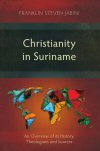
The Republic of Suriname, located in northern South America has a rich and diverse history going back several centuries. This has seen the introduction of Christianity and the establishment and creation of many church denominations. To date, major theological works have failed to provide correct, balanced, and informative dialogue on the history of Christianity and its developments in Suriname.
In response to the lack of information available to the academic world this publication aims to provide a survey of the history, a summary of the works of theologians, and a guide to reliable sources about Christianity in Suriname. Through overviewing the history of the major denominations in Suriname and focusing on only some major issues surrounding Christianity, the author delivers a unique single volume for both the general reader and a starting point for further research.
. . . local and regional histories of churches and missions are increasingly significant and urgently needed. Dr. Frank Jabini offers the world church an invaluable contribution with this history of church, mission and theologians of Suriname. Dr Jabini’s impressive primary documentation and encyclopaedic treatment seeks to set the record straight concerning Christianity in Suriname. This work is a precious gift that fills a serious gap in the history of the church in the Americas.
—Charles E. van Engen, Arthur F. Glasser Professor of Biblical Theology of Mission, Fuller Seminary’s School of World Mission
For the first time in Suriname’s history someone has undertaken the task to document a chronological account of the history of Christianity in Suriname. . . . I can confidently label it the prime source of information on Christianity in Suriname for anyone who endeavours to gain insights in its Christian heritage.
—Erle S. Deira, president, Paraklesis Ministries International, Suriname
Dr. Franklin Jabini can be called one of the leading theologians of his country, and certainly one of the fittest authors to write such a wonderful and detailed church history of Suriname. No country can afford to forget its history, and a largely Christian country cannot afford to ignore its church history and theology history. . . . It was therefore appropriate that someone would undertake to write Suriname’s Christian story, and no one could be better equipped than this son of Suriname’s own soil, Dr. Jabini. He did a marvellous job at that. . . . All in all, I highly recommend this scholarly work, which for a long time will be the source of reference for the Christian history of Suriname.
—Willem J. Ouweneel, professor of dogmatics, Evangelical Theological Faculty, Leuven, Belgium
Franklin Steven Jabini is the head of the Postgraduate School of the South African Theological Seminary (SATS). He serves the Evangelical School of Theology in Suriname (EST) and the Caribbean College of the Bible International in Trinidad (CCBI) in different capacities. Since 1988, he has been a full-time worker with the Plymouth Brethren.
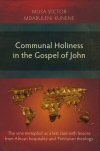
In this book the author contends that communal holiness is the central theme of the vine metaphor in John 15:1–17. Illumination of the Johannine vine metaphor is illustrated by drawing on background information on the vine and its metaphorical usage in the Ancient Near East, Old Testament, and Second Temple Period and to suggest understanding in light of the communal holiness of the covenant people of God. Comparing the themes of holiness and corporateness pertinent to the covenant the book also reflects the covenant with Israel in relation to John’s understanding of the people of God. The notion of covenant, which embraces reference to the people of God as vine/vineyard in the Old Testament and Second Temple Period, underlies John’s vine metaphor.
The book focuses research on ANE viticulture to determine the context(s) of when the vine was used to refer to Israel in a covenant relationship with God. In this historical context the Johannine vine metaphor receive fresh meaning and relevance for the people of God.
This work is a readable and balanced study of the vine imagery in John 15:1–17, arguing that its central theme is that of communal holiness. Kunene believes that the notion of covenant, with its associated ideas of holiness and corporateness, underlies John’s metaphor; while the Johannine understanding of the people of God, in his view, stems from the biblical motif of the covenant with Israel. This intriguing presentation will provide a fresh and helpful contribution to the field of Johannine studies, and I commend it to you warmly.
—Stephen S. Smalley, dean emeritus, Chester Cathedral, England
This book is a valuable reminder of the New Testament’s focus on the community of faith as the locus for holy living, an important corrective to Western individualist readings of Scripture. By bringing together a focus on the covenant motif, via the vine metaphor, with insights into ancient communal concerns by reference to his own Bantu tradition, Kunene presents a compelling reading of John that opens a fresh window for contemporary Christian interpretation and church practice.
—Dwight D. Swanson, senior lecturer and senior research fellow in biblical studies, Nazarene Theological College, Didsbury, Manchester
Studies on John 15 have either focused on its background or on the notion of the believer’s individualistic abiding in Christ. Dr. Kunene’s work fills a gaping hole in the interpretation of the vine metaphor in John 15 by ably demonstrating its implications for the understanding of communal holiness, situated in the context of Trinitarian theology. His work also shows that the teaching on holiness or sanctification is not to be confined to John 17 as is often done by those within the holiness movement. This book is important not only for its academic grounding of its thesis but also for its relevance to the life of Christian congregations as they continue the pursuit of holiness that is demanded by their covenant relationship with God.
—J. Ayodeji Adewuya, professor of New Testament, Pentecostal Theological Seminary
Musa Victor Mdabuleni Kunene is from Swaziland and is currently a pastor at St. Helens Church of the Nazarene in Merseyside, UK. He received his PhD in 2010 from the University of Manchester and has an MA in Theology from Nazarene Theological College, Manchester and an MA in religion from Southern Nazarene University, Oklahoma, USA.
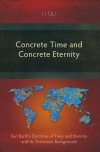
This publication investigates how Karl Barth’s doctrine of time and eternity can contribute to the continued understanding of the relationship of divine eternity to time or temporality. Examining from a theological, philosophical, and physical perspective, with deep emphasis on the Trinity, as well as Barth’s Christology and pneumatology, the author helps us to understand his theory on time and eternity. Barth’s contribution to the subject is significant, with his doctrine of time and eternity being relational in ontology, Trinitarian in background and concrete in character.
In this new book, Li Qu presents a comprehensive and sensitive interpretation of Barth’s understanding on the nature of created time and its relation to divine eternity. As a preparation, Li Qu explores representative theological as well as natural, scientific and philosophical accounts of the nature of time and its relation to divine eternity. In the central thesis he argues cogently that it is only from a specifically Trinitarian perspective that God’s eternity and our time can be joined concretely and actually. The study is well documented with an extensive bibliography. There is no question that his exposition and analysis of Barth’s text are faithful and readable. This is an up-to-date contribution to Barthian scholarship on a very contemporary topic.
—Graham McFarlane, vice principal academic, London School of Theology
Li Qu holds a BA in law from China University of Political Science and Law, an MPhil in Christian ethics from Hong Kong Baptist University, and a PhD in systematic theology from London School of Theology. Li is a Langham scholar and currently lectures at Hong Kong Baptist University.
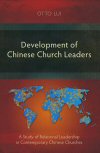
Confucianism and its influence on culture in East Asia has profoundly impacted Chinese churches and the development of their leaders. As a cultural force it continues to affect the perceptions and practices of Chinese pastors and how they lead. This work seeks to build an indigenous approach to developing church leaders by understanding the theoretical, and the situational foundations, of relational leadership from both cultural and biblical perspectives. The research is further enriched through case studies and interviews observing the practices of leadership in contemporary Chinese churches.
Dr. Lui’s groundbreaking study of the Church in China brings to light the wonderful role of local leadership in nurturing congregations through the turbulent times of social transition. The research on developing leaders builds on studies in leadership and the role indigenous cultures have on the transmission of faith. Comparing cultural insights from traditional values with the biblical understandings of local congregations, Dr. Lui brings a new appreciation for the role of informal mentoring from one generation to the next. This important work explores the role of leadership development during the period of China’s emergence on the global stage.
—Doug McConnell, professor of leadership and intercultural studies, Fuller Theological Seminary
Otto Lui is the associate general secretary of Christian Communications Ltd. (CCL). He holds an MDiv from Lutheran Theological Seminary, Hong Kong and a PhD from Fuller Theological Seminary, California, USA. He has been involved in ministry within China since 1995 and continues his work in developing church leaders in both Hong Kong and mainland China.
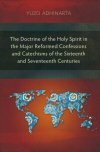
With the rise of Pentecostalism in the early twentieth century and growth in the charismatic movement since, a resurgence of interest in the Holy Spirit and Christian spirituality in both theology and the church’s life has become evident. Along with increased interest in the doctrine of the Holy Spirit, there are criticisms of the treatment of the doctrine in church history for having neglected the Holy Spirit in both theology and the church’s life. Critical studies of the treatments of the doctrine of the Holy Spirit in church history have been laboriously conducted. However, there have not been many studies on the doctrine of the Holy Spirit in Reformed orthodoxy, particularly in its confessional standards.
Recognizing the gap in the history of scholarship, this work explores and provides a systematic account of the person and some aspects of the work of the Holy Spirit as presented in the major Reformed confessions and catechisms of the sixteenth and seventeenth centuries. Attention is particularly given to those aspects of the work of the Holy Spirit that have not been greatly explored but are pertinent to contemporary discussions.
The doctrine of the Holy Spirit has been characteristic of Reformed Theology and has been one of the causes for the lasting influence, mainly through the Reformed confessions that were preached and taught to the congregations. Now with this study not only the influence of the pneumatology in Reformed confessions is demonstrated, but also its relevance for church and theology today. Dr. Adhinarta has served us with a well structured and source based study that I wish to be read and used by many.
—Herman J. Selderhuis, professor of church history and church polity, Theological University Apeldoorn, Netherlands
In a masterful piece of research, Yuzo Adhinarta demonstrates from major confessions and catechisms that the doctrine of the Spirit truly fills the Reformed tradition. He investigates the pervasive place of the Spirit not only in the doctrines of the Trinity, Christ, salvation, and the means of grace, but also in the doctrines of creation, providence, church life, missions, and social justice. Though most of the Reformed standards did not devote a separate article to the Holy Spirit, the Spirit’s work is pervasive to their witness.
—Joel R. Beeke, president and professor of systematic theology, church history, and homiletics, Puritan Reformed Theological Seminary, Grand Rapids, Michigan
. . . a major contribution to Reformation studies. As far as I know, there is nothing quite like it in any language. The author has made a thorough and careful examination of all the major confessions and catechisms of the sixteenth and seventeenth centuries and has read widely in the relevant secondary literature. The analysis is balanced and perceptive and reads so well that non-specialists can also benefit from this excellent study.
—I. John Hesselink, past president and emeritus professor of theology, Western Theological Seminary, Holland, Michigan
The Holy Spirit did not go to sleep between Montanus and Azusa Street and not only did churches of the Reformation experience the power of the Holy Spirit, they also proclaimed it to the world in their confessions. Yuzo Adhinarta’s careful textual study of the major Reformed Confessions of the sixteenth and seventeenth centuries will help put to rest for good the oft-repeated mischaracterization of the Reformation that it practically and theologically neglected the work of the Holy Spirit. It is a much needed corrective that will benefit both the church and the academy.
—John Bolt, professor of systematic theology, Calvin Theological Seminary, Grand Rapids, Michigan
After the Azusa Street revivals it has seemed to Pentecostal and charismatic evangelicals that Reformed theology, piety, and practice lacks sufficient appreciation of the person and work of the Holy Spirit. To Roman Catholic critics it seems as if the Reformed do not appreciate the centrality of the church and sacraments in the Spirit’s operation. Others have tried to refashion it after the image of Karl Barth. The present work by Yuzo Adhinarta clarifies the picture treating the confessional documents on their own terms and by calling attention to the dynamic, mysterious, Trinitarian, and churchly character of the confessional Reformed understanding of the person and work of the Holy Spirit. Those inside and outside the Reformed tradition will benefit from Dr. Adhinarta’s account of the confessional Reformed teaching.
—R. Scott Clark, professor of church history and historical theology, Westminster Seminary California, Escondido, California
Yuzo Adhinarta is a Langham Scholar and a missionary of Church of the Servant CRC, in Grand Rapids, Michigan, and Christian Reformed World Missions (CRWM). He now serves as a professor of systematic theology and director of the ThM Program at Reformed Evangelical Seminary Indonesia, while traveling widely among the churches in Indonesia to teach, preach, and develop Christian leaders in Indonesia.
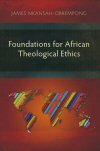
Having taught on ethics in Africa for almost a decade, James Nkansah-Obrempong presents a work that goes some way to addressing the dearth of materials on ethics that combine African social, religious, cultural, and moral values with biblical and theological values. Integrating these from African, Western, and biblical contexts Nkansah demonstrates how important they are for dealing with contemporary moral and social issues facing the church in Africa and African societies. The book develops a theoretical, biblical, and theological foundation for Theological Ethics and uses this to address the broader issues that affect the socio-political and economic life of African people and the church.
Foundations for African Theological Ethics offers an accessible and thoughtful guide to thinking about ethics in Africa. The approach is both biblical and practical and deals with many of the current challenges for Christianity in Africa. I can’t imagine a more timely topic and James Nkansah-Obrempong is just the person to write it. This is an ideal text for theological students, pastors, and especially for lay Christians who wrestle with God’s calling in contemporary Africa. Readers will be impressed both by the range of topics covered, from ecology and economics, to work and poverty, and by the clear and readable presentation of the method and biblical foundation for thinking and acting ethically.
—William A. Dyrness, emeritus dean and professor of theology and culture, Fuller Theological Seminary, Pasadena, California
This work passionately points us to some fundamental African values we must cherish, alerts us to some possible pitfalls if we borrow from the West wholesale, and establishes the biblical foundation for establishing a truly African Christian ethics for the continent. The work is not just left at the general principles of acceptable African Christian ethics but moves on to show how those principles apply to some concrete matters as we serve the African society, noting that such things as peaceful families and communities, strong economies and good governance will bring the change needed in the Africa of today.
—Samuel M. Ngewa, professor of New Testament, Africa International University, Karen, Kenya
The book . . . is a master piece in current African theological ethical discourse. The author . . . succeeded in integrating the cultural, moral, and social values from three contexts—Africa, Western, and biblical. This book is well researched, well thought through, systematically organized and beautifully written . . . it contains all that is necessary for an African Christian, and indeed, any African to have a solid foundation in African Theological Ethics. As I read this book through, I found it refreshing, informative, creative, innovative, and yet critical of the products of theological ethics in Africa. . . . The significance of this book lies in its theological ethical methodology. The author rooted his synthesis, systematization, and construction of theological ethics from the three traditions in the Triune God. . . . I recommend this book to university and theological students, pastors, and all those who are interested in theological ethics discourse in Africa.
—Yusufu Turaki, professor of theology and social ethics, Jos ECWA Theological Seminary, Jos, Nigeria
James Nkansah-Obrempong is associate professor of theology and ethics at Africa International University (AIU), Karen, Kenya. He holds a BA from Pan Africa Christian University, Nairobi, Kenya, an MDiv and MTh from AIU, and a PhD from Fuller Theological Seminary, California, USA. He was a post-doctoral research fellow at Global Research Institute, Fuller Theological Seminary. James currently serves as Ddan of NEGST, AIU and heads the Theology Department. He is also the vice-chair of the World Evangelical Alliance Theological Commission. He was formerly chair of Africa Society of Evangelical Theology (ASET) and is the author of Visual Theology.
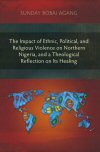
This publication seeks to challenge established thinking about the causes of violence in Northern Nigeria. It explores immediate and long-term effects of that violence through reflection, study, and survey of previous research. The fundamental argument within is that ethnic, political, and religious violence has affected Christian perspective and core values and thus has hampered efforts towards just peacemaking.
Sunday Agang’s work focuses on analyzing the impact of violence on the gospel vis-à-vis the role of Christian theology and Christology, particularly the Sermon on the Mount, in Northern Nigeria. He argues that violence is a moral problem that challenges the core of the nature, presence, and power of the gospel in any environment. Thus he uses a number of reflections from scholars in the global north . . . to revisit the politics of Jesus and the theology of nonviolence as articulated by the great practitioners: Leo Tolstoy, M. Gandhi, Dorothy Day, Martin Luther King Jr., and Desmond Tutu. . . . His study begs the question how much transformative potential could be embedded in a single privileged discourse.
—Ogbu Uke Kalum, former Henry Winters Luce Professor of World Christianity and Missions, McCormick Theological Seminary
Sunday Agang has written a book that is not only very well researched, balanced, insightful, and well written, but has produced a work that is rare in doctoral dissertation—it is courageous, humane, and deeply moving. . . . It urges us to think more deeply about the nature of violence and its extent, which has left Nigeria as a ‘crippled giant.’ Far from bringing a new era of peace and prosperity, the end of British rule opened the gates to chaotic violence. This book explores the dynamics of this chaos, and what a genuinely Christian theology and praxis can do for Christians as they seek to ameliorate the situation. It is not only a fine academic study, but also a study that could make a contribution to justice and peace making.
—Colin Brown, senior professor of systematic theology, Fuller Theological Seminary, Pasadena, California
Sunday Bobai Agang is the academic dean of one of Africa’s premier theological seminaries, ECWA Theological Seminary Jos (JETS). Sunday holds a BA from JETS, MDiv from Palmer Theological Seminary, Philadelphia, Pennsylvania, and PhD from Fuller Seminary, Pasadena. He has published several articles on various theological issues as well being a regular contributor to Christianity Today. An ordained minister with the Evangelical Church Winning All (ECWA) as well as a member of the Institute for Global Engagement, he is founder and chair of the International Foundation for Entrepreneurial Education (IFEE) and cofounder and vice president of Gantys Aid to Widows, Orphans and Needy (GAWON). Sunday Bobai Agang is a just peacemaking advocate.
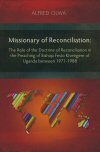
Bishop Festo Kivengere of Uganda (1919–1988) is one of the most widely known African evangelical leaders of the twentieth century. Central to his ministry, he preached the Christian doctrine of reconciliation into a Uganda where Christians lived under the horrors of Idi Amin’s rule and its aftermath. In this publication Dr. Alfred Olwa carefully examines 26 of Kivengere’s sermons from a biblical and theological perspective to better understand his theme of reconciliation. Through this analysis we see Kivengere’s deep understanding that the reconciling work of Jesus Christ is central to God’s grand purpose for the world, from creation to new creation.
Festo Kivengere had a God-given ministry of evangelism not only in his native Uganda but worldwide. At the heart of his Gospel was the message of reconciliation—God reconciling the world to himself in Jesus Christ. This led to a dynamic message of God’s love empowering people to find reconciliation with each other. This was especially relevant in the years when Kivengere saw his country torn apart by a reign of terror under Idi Amin. The Rev. Dr. Alfred Olwa has done us a great service by gathering the text of Feso Kivengere’s sermons and talks in several countries and exploring their wonderful message of reconciliation, peace with God, and with each other. This book is not just the memorial to a great man, but a reminder to us all, not only those with an interest in Africa, of the daily availability of God’s reconciling power in Christ.
—Colin Reed, CMS Missionary
Alfred Olwa has produced an important work at a time when African church leaders are assuming an increasingly important global role. He demonstrates that the Christian doctrine of reconciliation was central to Festo Kivengere’s preaching, shaping both his public life and his central message that exhorted audiences to be reconciled with God and their fellow human beings. Dr. Olwa has compiled an impressive array of resources which promise to be a valuable resource for future researchers studying Festo Kivengere, the history of Uganda, or Ugandan Christianity. This is a book worthy of wider reflection.
—Peter Davis, academic director, Wesley Institute, Sydney
Alfred Olwa holds a PhD from Moore College, Sydney and is currently head of the Practical Studies Department at the Bishop Tucker School of Divinity and Theology, Mukono. He lectures in mission, biblical theology, worship, and homiletics. Alfred was previously dean of the faculty of theology at Uganda Christian University.
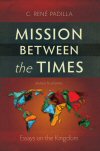
René Padilla is one of the premier representatives of Orthodox evangelicalism in Latin America. He has consistently championed integral mission, a holistic understanding of Christian mission in which there is no artificial barrier between evangelization and social responsibility. Biblical, faithful to Scripture, contemporary, and inspirational, the core message of this updated classic remains just as urgent as when it was first published 25 years ago. This revised version includes a new essay on the contemporary history of integral mission, a history that began with the Latin American Theological Fellowship, progressed within the Lausanne Movement, is bearing fruit globally through the Micah Network, and challenges evangelicals to address the major issues of our day.
One mark of a good book, a good theology, or a good missiology is the test of time. The essays in this book are as relevant today as they were when Padilla first published them twenty-five years ago. Written to remind evangelicals of their true loyalties at a time when many found the siren allure of an idolatrous, self-serving state difficult to recognize let alone resist, the book could not have been more timely for those who had ears to hear and eyes to see. Kingdom citizens today, mostly found beyond Christianity’s old heartlands, are much in need of Padilla’s incisive biblical thinking. This book is for such a time as this.
—Jonathan J. Bonk, executive director, Overseas Ministries Study Center
Mission Between the Times is a classic of contemporary missiology. René Padilla wrote the essays in this book while he was engaged in evangelistic and discipleship ministries throughout Latin America and other parts of the world. Excellent as a textbook in Missiology, it shows the way in which a practitioner of mission reflects about his practice in light of God’s word.
—Samuel Escobar, emeritus professor of missiology, Palmer Theological Seminary
We stand in debt to René Padilla. His writing and teaching on Integral Mission over the past decades offer the insights and convictions of a unique missiologist who is 1) a New Testament specialist, 2) rooted in the global south, and 3) a passionate follower of Jesus. His voice is prophetic, informed, and committed to the mission of God’s rule in a wounded world. I applaud the re-issue of Mission Between the Times and urge readers to pay particular attention to the three urgent missionary challenges Padilla presents in the introductory chapter.
—Gordon King, director, The Sharing Way, Canadian Baptist Ministries
René continues to remind us that the mission of God is not a one-way exchange between sender and receiver; it is a divine partnership in spiritual, economic, and social development that will ultimately bring all honor and glory to God. The keys to holistic and interdependent transformation of communities remain education, healthcare, reduction of poverty, justice, and reconciliation in the context of integral mission.
—Mike McAdams, president, Center for Missional Leadership, Brenham, TX
As the father of integral mission, René Padilla’s prophetic voice resonates throughout global evangelicalism. Biblical, faithful, and inspirational, the core message of this updated classic remains just as urgent as when it was first published. I am thrilled it is being made available for a younger generation of Christian leaders!
—Dana L.S. Robert, Truman Collins Professor of World Christianity and Mission, Boston University School of Theology
The Lord used his plenary address at the Lausanne Congress in 1974 to motivate evangelicals to begin the long and difficult process of re-uniting the verbal proclamation of the gospel with the social and political outworking of true faith. This vital book contains that original Lausanne presentation and other messages that René has contributed to the theological struggle for the gospel during the subsequent decades. The contextualization of the gospel, the call for a lifestyle of simplicity, the centrality of the Kingdom of God, the insufficiencies of the homogeneous unit principle: these and other themes are masterfully presented and defended herein.
—Lindy Scott, professor of Latin American studies, Whitworth University
C. René Padilla is one of Latin America’s most distinguished evangelical scholars. He was a founding member of the Latin American Theological Fellowship (FTL) and of the Kairos Foundation in Buenos Aires. He served with distinction in the IFES and Tear Fund—UK and Ireland, and is currently president of the Micah Network, president emeritus of the Kairos Foundation, and executive director of Ediciones Kairos. The previous edition of this book was published in English in 1985 and in Spanish in 1986, and has been translated into Portuguese, Swedish, German, and Korean.
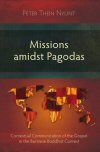
For almost 200 years Protestant missionaries have endeavored to communicate the Gospel to Burmese Buddhists in Myanmar. However, Christianity among this people group is still regarded as a ‘potted plant’ with former Buddhists being separated from both their community and culture. In this publication Peter Thein Nyunt, a former Buddhist monk, examines past and current approaches of the Protestant church among Burmese Buddhists. Based on his findings the author develops a contextual missiological strategy, with a relevant christological message and ecclesiological structure.
Dr. Peter Thein Nyunt holds vital roles in Myanmar as professor, strategist, and one of Asia’s significant missiologists of the 21st century. He skillfully integrates both theory and practice in his consistent ministry to the Rakhine people within his Buddhist nation. I commend Missions amidst Pagodas for its attempt to communicate Christ in indigenous ways within the Burmese Buddhist context. His careful cultural analysis will quicken thinking and stir creative intellectual juices. While some may not fully agree with his using nirvana as equivalent to biblical heaven, his discussions should be read thoughtfully and pondered intently. This is a refreshing and stimulating book.
—Alex G. Smith, Buddhist world advocate, OMF International
This is such an important book—well-researched, cogently argued, clearly expressed. It should be read and studied by everyone who wishes to show the good news of Jesus with Buddhists in Myanmar.
—David Harley, former principal, All Nations Christian College, UK,
This should be a handbook for Christian organizations, churches, and mission practitioners who are being engaged in Christian communication with the Buddhist world.
—Mar Gay Gyi, former president, Myanmar Council of Churches and Myanmar Baptist Convention
My faithful co-worker, Dr. Peter Thein Nyunt, has very rich experience in communicating the good news with our Buddhist brethren. His profound missiological insights in Missions amidst Pagodas are incredible. I recommend all disciples of Jesus Christ who have passion to communicate the gospel with the Buddhists should read this book.
—Aung Mang, former principal, Myanmar Evangelical Graduate School of Theology (MEGST)
Peter Thein Nyunt is a native of Myanmar and is one of the founders of The Rakhine Missions Band for Christ, an outreach ministry that now numbers over 2,000 former Buddhists. Dr. Thein Nyunt holds a PhD in missiology from SAIACS, India, an MTh from Nusantara Bible Seminary, Indonesia, and an MDiv from MEGST, Myanmar. He is currently head of missions studies and director of post-graduate studies at MEGST, Myanmar as well as the director of The Rakhine Missions Band for Christ. His additional responsibilities include the position of Myanmar Country Coordinator for The South and Southeast Asia Network, Country Coordinator for Langham Preaching, and Joint Secretary for Myanmar Evangelical Christian Fellowship.
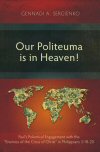
“For many of whom I often told you, and even now am writing with tears, walk as the enemies of the cross of Christ: they walk to their final destruction, their god is the belly and their glory is in shameful things, their minds are earthly bound. But our πολίτευμα is in heaven from where we expect the Lord Jesus Christ, who is our Savior.” Philippians 3:18–20
Paul’s letter to the Philippians shows us that this rather outspoken man had plenty of opportunity and cause to aggravate his Christian contemporaries. However, for Paul to use such hostility and to name people as “enemies” shows us that we should take note and try to understand the meaning behind his statement. In this work the author asks: Who were these enemies? What did they do wrong? Why did they deserve destruction? In search of these questions the investigation looks to the early Christian communities and their formation within the socio-political realities of the urban centers of the Roman Empire. Through this we learn a great deal about the uneven and complex dynamics of the early Christian community and a deep understanding of Paul’s warning to them.
This detailed work . . . brings forward a wealth of inscriptional and literary evidence useful for understanding the cultural setting in which Christians of first century Philippi lived out their daily lives. Against this backdrop, Sergienko probes the thesis that the Philippian Christians were compromising their commitment to Jesus Christ as Lord and Savior by participation in local voluntary organizations that included the practice of emperor worship. Offering a fresh look at ancient evidence and the text of Philippians, Sergienko crafts a suggestive argument for reading this epistle and Paul’s call for exclusive allegiance to Jesus Christ as Lord in light of various religious, social, and cultural obstacles faced by the church.
—Marianne Meye Thompson, George Eldon Ladd Professor of New Testament, Fuller Theological Seminary
Gennadi A. Sergienko holds a BSc from Moscow State Building University with a major in mechanical engineering, a ThM from Dallas Theological Seminary, and a PhD from Fuller Theological Seminary. He currently resides in Moscow, Russia and is employed as Prorector for Academic Affairs of the Moscow Theological Seminary of ECB.
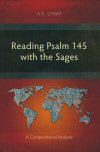
Traditionally, the Psalms have been read in reference to their historical context. This publication suggests to read a psalm in its literary context and with reference to the editorial intent of its placement in the Psalter. The author proposes that such reading brings holistic richness in our understanding of the thematic patterns underscored in individual psalms. The study analyzes Psalm 145, a unique Davidic psalm, providing the reader with an in-depth understanding to the purpose of its placement.
Dr. Lama has made a careful study of the final Davidic psalm in the Masoretic Psalter. He has recovered the importance of the Kingdom of God as the hope of the Psalter. David submits himself and the future of his dynasty to God’s universal rule. This study follows the compositional and canonical approach. It is a good read!
—Willem A. VanGemeren, professor of Old Testament and Semitic languages, Trinity Evangelical Divinity School
Ajoy Kumar Lama was born and raised in a traditional Tibetan Buddhist family and came to Christ while studying veterinary science in Patna (India). He holds a BVSc from Rajendra Agriculture University, Pusa (India), an MDiv from AIT Bangalore, a DMin from Beeson Divinity School (Birmingham, AL), and a PhD in the Old Testament from Trinity Evangelical Divinity School (Deerfield, IL). During his career he has served as a staff member of the Union of Evangelical Students of India, a senior pastor in India, a missions pastor in the USA, and is currently the General Secretary of the Council of Baptist Churches in North East India.
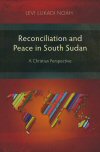
This work, carried out prior to the creation of The Republic of South Sudan, focuses on the Christian perspective of reconciliation and peace in South Sudan. In a country gripped in what was set to be, until recently, Africa’s longest running civil war, the Sudanese state had been, on many occasions, inherently unjust, repressive, and extremely violent against sections of its own citizens resulting in long lasting conflict and war. This conflict has stretched deep into the history and geography of the country.
This study sets out to investigate people’s views and trends to find out whether the end of hostilities would mark the end of interpersonal, group, tribal, and interethnic conflict created by the war. It asks, are people ready to forgive those who could have wronged them during the war without demanding for justice? What would constitute true peace in Sudan? Do the church and the government in Sudan each have a role in bringing sustainable peace?
Findings of the research show an overwhelming want for reconciliation and peace but with very different ways of reaching it. It is however recognized that to constitute true peace in South Sudan there is need for equality and justice, observation of the law, democratic governance, complete transformation, equitable distribution of resources and services, and freedom of worship. For this to be achieved it has been acknowledged that both the church and government must play critical roles.
Memories of the war are still fresh in people’s minds. The government must recognize the trauma people have suffered, deal with the roots of the conflict and address the crimes committed so that wounds inflicted can be healed and people can then live harmoniously. The church must teach people the biblical understanding of peace and reconciliation through repentance and forgiveness so that it can have true meaning.
Levi Lukadi Noah was born and raised in South Sudan and is the director of the Christian Leadership Institute of Sudan in Yei, South Sudan. He received his Bachelor of Divinity from St. Paul’s United Theological College, Limuru, Kenya, his Master of Arts in Theology from Uganda Christian University, and his Postgraduate Diploma in Education at Kampala International University, Uganda.
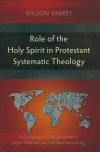
This volume is a meticulously researched text on pneumatology which puts the major pneumatological issues together without confining to the traditional way of dealing with the doctrine of the Holy Spirit. Although pneumatology has been a neglected field in theological discussions of the past, there is a renewal of interest among theologians on pneumatology today. This renewal of interest has led to the formation of this work on the role of the Holy Spirit in the Protestant Systematic Theology. Through highlighting the role and significance of the Holy Spirit in the whole divine action, this volume contends that pneumatology is not a dull theological locus, but rather an essential theological disposition relevant for today. The detailed arguments found within challenge and inspire the contemporary pneumatological discussions as it relates to all the facets of theological reflection and action.
This volume is a meticulously researched text on pneumatology which does not confine itself to the traditional path but presents an innovative pneumatological paradigm which can be applied to today’s problems. This volume would definitely inspire many readers to consider anew the doctrine of the Holy Spirit as it relates to all the facets of theological reflection and action.
—Hans Schwarz, professor of systematic theology and contemporary issues, University of Regensburg, Germany
This is another classic on pneumatology, a remarkably well conducted research on its own kind by a young Pentecostal theologian, divulging the importance of pneumatology in systematic theology. This research contends that the discernment of the Spirit is not a dead issue of the past but rather it is very much alive giving responsible answers to humanity’s pressing needs in today’s context. This is worth reading.
—Veli-Matti Karkkainen, professor of systematic theology, Fuller Theological Seminary
Wilson Varkey has done those researching the doctrine of the Holy Spirit a tremendous service by providing a comprehensive analysis of the roots of the so-called renaissance of pneumatology today, peering into the intricate details of not one, nor two, but three of the most important Protestant systematic and dogmatic theologians of the twentieth century—Barth, Moltmann, and Pannenberg. Herewith he has accomplished the impossible: identifying from whence the winds of the Spirit have blown and charting trajectories to where they are going. The theological academy is in his debt.
—Amos Yong, J. Rodman Williams Professor of Theology, Regent University School of Divinity
Wilson Varkey hails from Kerala and is a licensed minister of the Indian Pentecostal Church of God. Varkey holds a bachelor’s in Economics from the University of Calicut, a BD and MTh from Senate of Serampore College through FTS Manakkala and UTC Bangalore, and Graduate Studies in Ecumenics from Bossey Institute, Geneva. He has completed a PhD from the University of Regensburg, Germany with ‘Summa cum Laude.’ Currently he works as assistant professor of systematic theology in IPC Theological Seminary.
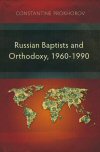
Russian Baptists and the Orthodox Church have had a difficult and, on occasion, dramatic relationship over the last 150 years. Despite the evident dissimilarity in theology, church practice and traditions, there is common ground which has been largely unexplored. Focusing mainly on 1960 to 1990 the author investigates the differences and similarities between the two denominations, recognizing a significant Orthodox orientation among Russian Baptists in their theology, spiritual mentality, and culture.
This extremely perceptive study of late twentieth-century Russian Baptist theology and practice, which analyzes a wide range of periodical and oral evidence, is very welcome. Whilst common perception, with much good reason, distances the life and thought of the Baptist and Orthodox denominations in Russia from each other, Constantine Prokhorov helpfully identifies, in a period of political conflict between East and West, much common ground in piety, liturgy and thought. This work also indicates how both denominations are situated within developing and changing Russian culture.
—John Briggs, research professor, International Baptist Theological Seminary, Prague
This is an outstanding work of historical research, which probes in detail the relationship between Russian Baptist communities and the Russian Orthodox Church in the period 1960–1990. Constantine Prokhorov draws from a very wide range of Russian primary sources and personal interviews to show that in this period Russian Baptist life reflected Orthodox thinking and practice in a number of crucial areas. His argument, which is presented in an appealing and a compelling way, has profound implications for an understanding of evangelical-Orthodox relationships in Russia and also elsewhere.
—Ian Randall, senior research fellow, Spurgeon’s College, London
Constantine Prokhorov is a historian and writer from Russia. He holds a BA in history from North Kazakhstan State University, a BA in theology from Odessa Theological Seminary, and a PhD from the International Baptist Theological Seminary, Prague. He has authored several books and numerous articles on history and theology that have been published in both English and Russian. Constantine is a deacon of Central Baptist Church in Omsk, Russia.
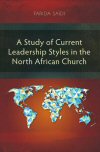
Indigenous church leadership is a new phenomenon in North Africa. Until recently, non-Muslim background believers were the only leaders of churches in this region. With the current growth of national churches there are increasingly more leaders from a Muslim background leading to a diverse range of leadership styles. This publication, a first of its kind to specifically explore church leadership in North Africa, investigates common values, beliefs, and cultures among church leaders. Identifying four distinct leadership styles and examining them closely, the author looks to the impact they may have on congregations, society, and the future development of church leaders in the region.
The Church of North Africa has mushroomed from almost nothing to tens of thousands within the past few years, with the result that indigenous believers that are thrust into leadership have never seen a mature leader of their own ethnicity as a role model. Farida approaches the subject with the insight and respect achieved through leading to faith and nurturing hundreds of Muslims in France and North Africa. Drawing from the leadership styles in the cultures and history of the latter region, including its ancient and contemporary church, she examines them through the lens of biblical leadership values and discerns guidelines that are both culturally relevant and biblical.
—J. Dudley Woodberry, senior professor of Islamic studies, School of Intercultural Studies, Fuller Theological Seminary
In the growing North African Church today, there is a vital need to reflect on a number of biblical, theological and practical issues. Few, if any, are more important than the question of the church’s leadership. Dr. Saidi has done a remarkable job in advancing the reflection and proposing concrete and credible models, developed under the scrutiny of biblical teaching and deeply rooted in the history and culture of North Africa, with input from her vast and lengthy experience in the field. One would search in vain for another book on the subject with the same pertinence, depth of research, quality of presentation and practical outlook. Highly recommended.
—Amar Djaballah, dean and professor of biblical studies, Faculté de Théologie Évangélique de Montréal
Farida Saïdi was born in Constantine, Algeria and later moved to Paris, France, where she was raised. After completing her theological education in Paris in 1979 she founded a ministry called L’Ami, to assist North African Christians living in France. She holds an MA and a PhD in intercultural studies from Fuller Theological Seminary, USA. Farida teaches internationally on issues related to Muslim-Christian relations, Islamic studies, and witnessing to other faiths, as well as being a member of several international committees acting as a consultant for work in Muslim areas. She has previously published in the areas of immigration in France and Christian communities living in Muslim contexts.
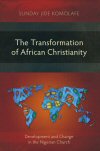
The explosion of the church in Nigeria is phenomenal, with a forward momentum that is as remarkable as the missionary optimism of the first century church. The history reveals a tightly woven narrative of the process of beginnings, growth, and change.
The Transformation of African Christianity is a systematic ecclesiological reflection on the extent to which the understanding and practice of ‘church’ have changed during one and a half centuries of Christianity in Nigeria. This provides pastors and practitioners with an interpretive framework for a contextual yet biblical way of doing church as Nigeria moves into the future. It will also give the theorist a missiological and theological compass to guide the work of theorizing and provide symmetry of understanding and interpretation in the ongoing appraisal of non-Western and global Christianity.
The dynamic characteristics of Christian churches in Nigeria present, in many ways, an ecclesiological model for the entire continent. Dr. Sunday Komolafe has produced a much needed publication for his own context which, while located in Nigeria, is actually much broader than Nigeria. This is because the story of mission history, cultural expressions of African church, and the more contemporary ‘Pentecostal’-type movements in Nigeria all have great implications for West Africa and Africa as a whole. This precedent work shows the author’s ability to synthesize historical, cultural, and theological dimensions in the Nigerian church. I commend this book highly as a product of excellence and integrity.
—Dean S. Gilliland, professor emeritus of contextualized theology and African studies, Fuller Theological Seminary, School of Intercultural Studies
The story of Christianity in Nigeria remains one of the most remarkable of modern times. In this detailed study, Komolafe examines major factors that have shaped the church in Nigeria from the beginning and provides a meaningful appraisal of contemporary transformations from a biblical perspective. The treatment is insightful and the analysis is fresh. A welcome addition to the growing body of African scholarship.
—Jehu J. Hanciles, Brooks Chair of World Christianity, Candler School of Theology Emory University, Atlanta-Georgia, USA
This is an impressive account of mission history, of the role of African culture and agency in the historical transmission of the Christian faith, of the understanding of the nature of the church, and of the different ecclesiastical paradigms that have emerged from different experiences, practices, and theological thinking. The book has made its mark as an important interpretative account of Christianity in Nigeria. It deserves to be read by scholars of African Christianity, Christian missions, and those interested in religious change in Africa.
—Matthews A. Ojo, professor, Department of Religious Studies, Obafemi Awolowo University, Ile-Ife, Nigeria
Sunday Jide Komolafe is founder and executive director of the Center for Christian Renewal and Advancement in Lagos, Nigeria. He is also associate professor of ministry and theology at the Africa Centre for Theological Studies. He received his Phd in Intercultural Studies from Fuller Theological Seminary, Pasadena. Some of the works he has authored include Christ, Church, and the Cosmos: A Missiological Reading of Paul’s Epistle to the Ephesians and The Changing Face of Christianity: Revisiting African Creativity). Sunday specializes in the field of practical theology.
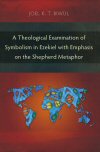
The use of symbolic and metaphoric expressions is common in the literary convention of Jewish prophetism. Ezekiel holds true to this prophetic tradition in his use of symbolic sign-acts, particularly the shepherd metaphor found in chapter 34. Addressing the subject of failed leadership in secular and sacred domains, this publication points to Ezekiel’s use of symbolism and the shepherd motif to show what society stands to lose under bad leadership and governance. The author shows Ezekiel uses this symbolism to not only highlight the failures of human shepherds but to give hope to the communities they have failed. One day God will shepherd his people into a perfect and tranquil society.
This study of the shepherd metaphor in Ezekiel 34 constitutes a stimulating challenge to everyone who reflects on one of the most important problems facing believing communities across Africa: the theological-ethical agenda of leadership. Ezekiel 34 is investigated against the traumatic backdrop of the Babylonian exile, a socio-economical and cultic understanding of shepherding in the context of animal husbandry in the Ancient Near East, the emphasis on the covenant in Deuteronomic theology, and the strong indictment of Israelite leadership as shepherds. The challenging conclusion is that Ezekiel 34 juxtaposes the failed Israelite leadership with a theological and eschatological use of the shepherd metaphor that points towards Yahweh as the Shepherd of his people—despite the fact that they are in exile!
—Hendrik L. Bosman, professor of Old Testament, Stellenbosch University, South Africa
Biwul’s theological examination of symbolism in Ezekiel is a thought provoking work. The writer is keenly aware that what is lacking within his immediate and wider contexts is the near absence of transparent and accountable leadership. The author clearly points out in his treatment of the shepherd motif the fact that both the Shepherd and the flock have divine responsibilities, which if not addressed would lead to the structural dislocation of society. Therefore, in a subtle way, the author sets out to address the preponderance of leadership failures and other challenges emanating from both the leaders of the people as well as the non-responsiveness of the led to responsible followership. Using appropriate stylistic and literary devices of investigative research, the author superbly assesses Ezekiel’s symbolism using the motif of the shepherd and his flock. He opined and rightly too that the bane of the present day society is the ever growing cases of leadership failures, as a result of the absence of the fear of God. This work is a piece of literature, which possess both the power and capacity to catch the attention of its reader, no matter how well placed or grossly disadvantaged.
—Jotham Maza Kangdim, associate professor of Old Testament, Department of Religious Studies, University of Jos, Nigeria
Joel K.T. Biwul is an ordained minister with The Evangelical Church Winning All (ECWA). He serves as head of the Pastoral Department of Jos ECWA Theological Seminary (JETS), Nigeria, where he lectures in Old Testament and pastoral theology. He holds an MDiv in pastoral theology and a PhD in Old Testament both from JETS, and a Postgraduate Diploma in Education from Ahmadu Bello University, Zaria, Nigeria. Joel is former dean of student affairs and former acting registrar of JETS.
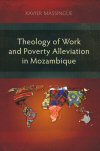
This publication seeks to determine the need, possibilities, and strategies necessary to alleviate urban poverty in Mozambique through the tool of transformational business, understood out of a Contextual Theology of Work (CTOW). Focusing on the Maputo metropolitan area, but also wider contexts, the author examines the dynamic relationship of urban poverty, unemployment, and work. Recognizing that unemployment is the main factor behind poverty in Mozambique and placing great emphasis on kingdom theology the author recommends that evangelical churches need to embrace CTOW and engage positively with urban poverty to create real economic change.
Although the substance of this thesis is developed for evangelicals in Mozambique, the issues involved are crucial in today’s globalized society. The study reveals both historically and theologically how the church has failed, in the practical sense, to model and implement the Kingdom of God, while continually conforming to various worldly cultures. This thesis provides the perspective and practical means to our mandate in Philippians to practically ‘work out our own salvation,’ not to qualify for redemption but to become effectual vessels, implementing divine power from mere theological concepts and being ‘doers of the word’; freeing individuals from their slavery to corruption into sharing the glorious freedom and riches as the children of God.
—Ron MacDonald, director and vice president, Trinity Ministry Institute, Inc.
Xavier Massingue, a native of Mozambique, holds a DTL from Bakke Graduate University, Seattle. He is currently the coordinator for church development and spiritual transformation groups at World Relief in Mozambique. Prior to this he has worked with OMS in South Africa and Mozambique coordinating church planting initiatives and also served with Bible League as their National Director.
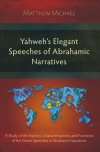
Yahweh’s Elegant Speeches of Abrahamic Narratives: A Study of the Stylistics, Characterizations, and Functions of the Divine Speeches in Abrahamic Narratives
- Author: Matthew Michael
- Series: Langham Monographs
- Publisher: Langham
- Publication Date: 2014
- Pages: 330
This publication is a pioneering work in the contemporary study of stylistics, reminding the reader of the literary elegance and beauty of the speeches of Yahweh in the Abrahamic narratives. It studies the attribution, aesthetics, and representations of these divine speeches.
The author employs a synchronic reading of the Abrahamic cycle, highlighting the use of various literary devices found within the divine speeches. Through this engagement it becomes clear that the high concentration of distinctive literary features found in the speeches of Yahweh are deliberately denied and glaringly absent from other characters within the Abrahamic narratives. More so, it highlights the ideological significance these decorated speeches of Yahweh had for the original audience of the narrator.
Dr. Michael’s book is a well-researched and well-written contribution to the current focus on stylistics in the literature of the Old Testament. Still, the book avoids a mere ‘art for art’s sake’; the stylistic devices are seen as fulfilling certain semantic functions that express a message to the world of the author as well as to readers of today. As such, the question of contemporary relevance—which is a major focus of Dr Michael’s immediate academic context, that of African Old Testament scholarship—is not absent, rather approached from a new and fascinating perspective.
—Knut Holter, Prorector for Research, MHS Misjonshøgskolen, Norway
I found in this work a thoughtful and thought-provoking analysis of stylistic features of the (reported) divine speeches in the narratives about Abraham (and YHWH) in the book of Genesis and their significance for both the communication of central ideological positions and esthetic pleasure to its intended readers.
—Ehud Ben Zvi, professor, Department of History and Classics, University of Alberta
Matthew Michael is presently a research fellow at the Department of Old and New Testaments at Stellenbosh University, South Africa and the academic dean of ECWA Theological Seminary in Kagoro, Nigeria. He has published several articles on the literary and artistic features of the Hebrew narratives.